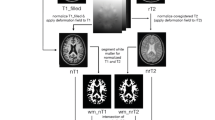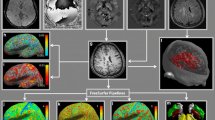Abstract.
Cognitive impairment in multiple sclerosis (MS), generally in the form of the so-called subcortical dementia, results predominantly by the disruption of communication among cortical and subcortical areas, consequent to white matter damage. Studies with conventional magnetic resonance imaging (MRI) demonstrated that cognitive impairment in MS patients is related to lesion burden, although the strength of this correlation is weak. This can be partially explained by the poor pathological specificity of conventional MRI techniques and by damage in the normal-appearing white matter (NAWM). This interpretation is supported by studies using non-conventional MRI techniques, more specific to the heterogeneous substrates of MS pathology, such as the assessment of hypointense lesion load on T1-weighted scans and the measurement of the magnetization transfer ratio (MTR) of whole brain, MS lesions and NAWM. Other factors, such as the site of MS lesions and the presence of active inflammation, also seem to play an important role.
Similar content being viewed by others
Author information
Authors and Affiliations
Rights and permissions
About this article
Cite this article
Comi, G., Rovaris, M., Leocani, L. et al. Clinical and MRI assessment of brain damage in MS. Neurol Sci 22 (Suppl 2), S123–S127 (2001). https://doi.org/10.1007/s100720100049
Issue Date:
DOI: https://doi.org/10.1007/s100720100049




